By: Elif YÜCEL, Food Engineer, MSc, General Secretary of SETBİR
From: SETBIR
In Türkiye, 4.9 million loaves of bread are wasted daily, and 50% of the vegetables and fruits produced are lost. In the service sector, 4.2 tons of food and 2,000 L of beverages are wasted per business per year. The Ministry of Food and Agriculture of Türkiye stated that, 18.8 million tons of food goes to waste every year in Türkiye and therefore, it is necessary to produce efficient solutions throughout the entire food chain to reduce the amount of wasted food.
In addition to the economic damage it brings to farmers, consumers and other stakeholders in the food value chain, food losses and waste also negatively affect production resources and the environment.
Türkiye has implemented a comprehensive project that is an example to the world in combating food loss and waste. The “Protect Your Food, Protect Your Table” project, which was implemented in 2020 with the support of the United Nations Food and Agriculture Organization (FAO), has completed its 3rd year.
The aim of this project is to increase social awareness in the fight against food loss and waste. The project aims to inform both citizens of all age groups and businesses in the food sector on many issues such as planned shopping, conscious consumption, expiration date and recommended consumption date difference, shopping management, supply management, storage methods, food label literacy.
In this context, on behalf of the project, a National Strategy Document and Action Plan on the prevention, reduction and management of food losses and waste was prepared for the first time in Türkiye. The basis of our National Strategy is based on the Food Loss Hierarchy. The first aim is to prevent loss and waste in food; the second goal is to save and redistribute food if possible; the third purpose is to use it as animal feed if human consumption is not possible; finally, to ensure the recycling of waste food.
To achieve these goals, nearly 100 actions and the institutions and organizations responsible for carrying out each action have been determined. Awareness is the most important element in preventing food loss and waste. A campaign has been designed for this purpose. With this campaign, the Guinness record for ‘most promises made in the field of environmental sustainability’ was broken for the first time in the world.
With the support of stakeholders, valuable guides have been prepared for areas such as mass consumption areas, retail, and logistics, which will contribute to reducing food loss and waste, and have been shared with the sector.
The food banking system is also implemented in Türkiye, and efforts are continuing to make it more attractive.
Guidelines have been published for food chain actors to reduce food loss and waste. With the save-your-food kitchen workshops, consumers were made aware of food waste, their food literacy was increased, and correct cooking techniques were taught. Food waste, which makes up almost 55% of garbage, has been reduced.
With all these studies, the project achieves its goals and minimizes food loss and waste by raising awareness throughout the country.


Very nice project!
I am curious to find more about this ‘the Guinness record for ‘most promises made in the field of environmental sustainability’ was broken for the first time in the world’. Not sure I totally understand this?
It is good news to hear about this project from Türkiye, which covers the whole food supply chain ‘from farm to fork’.
I read the article, and i really like the idea of the mascot ‘Cano’, which is going to be present everywhere (e.g. restaurants, markets), to remember food chain actors and consumers about the project, and give advice to them.
I’m interested in the guidelines published for food chain actors. Are they available for the public?